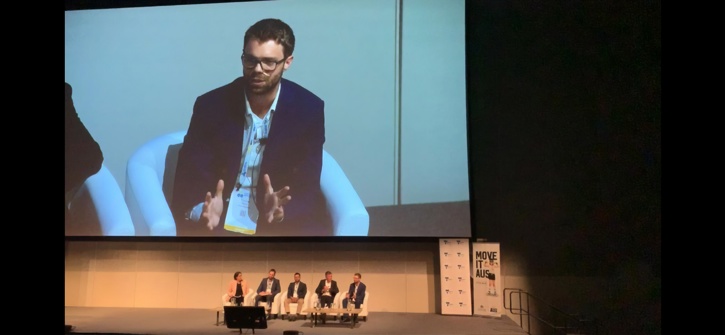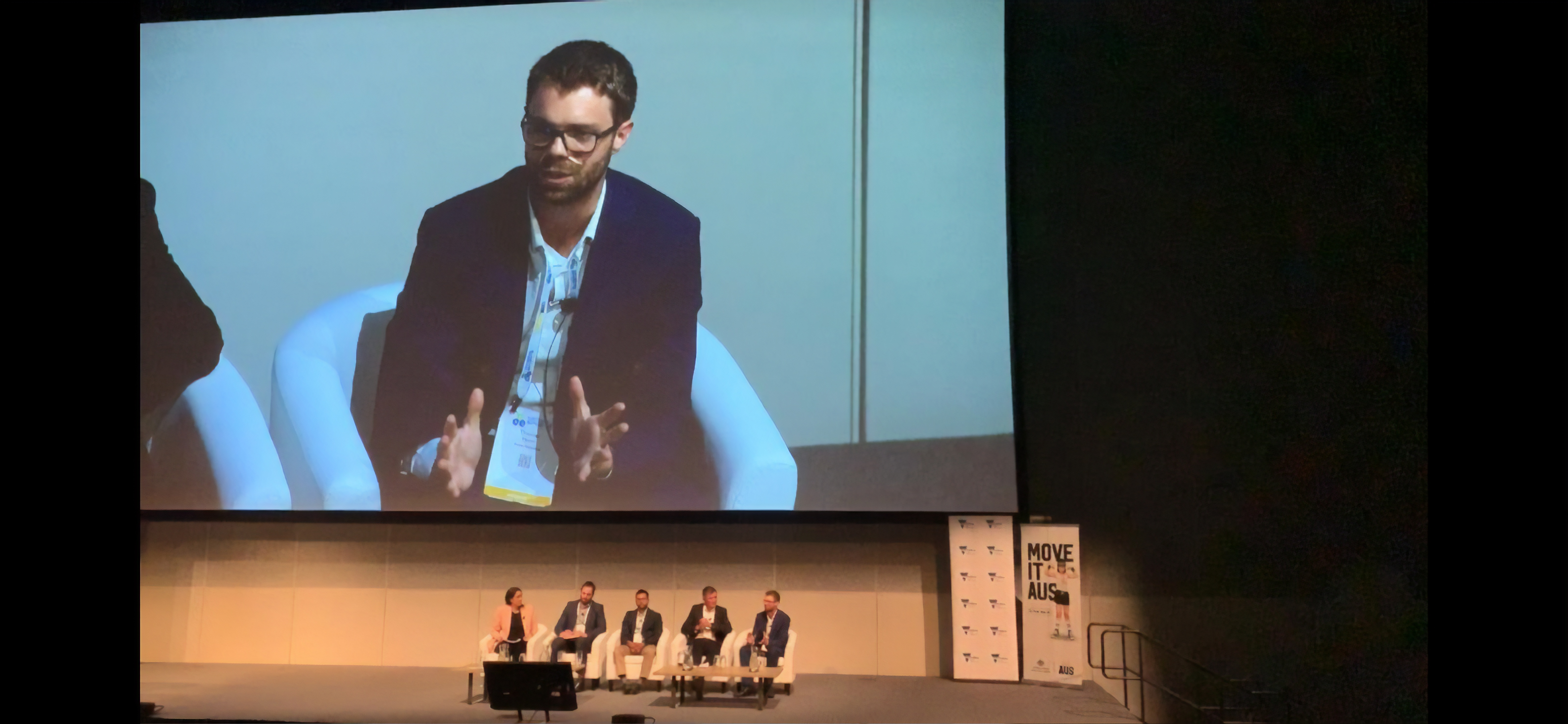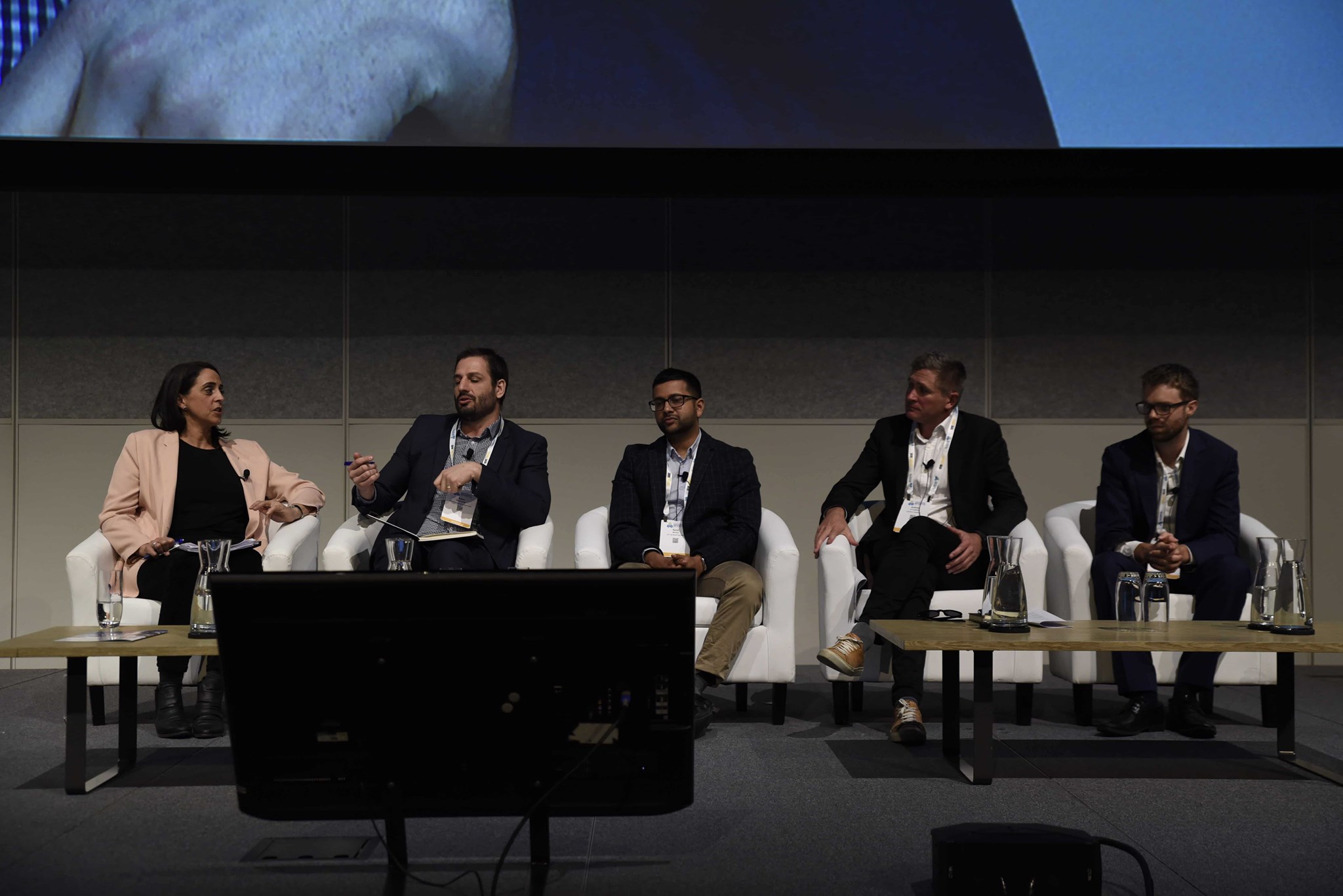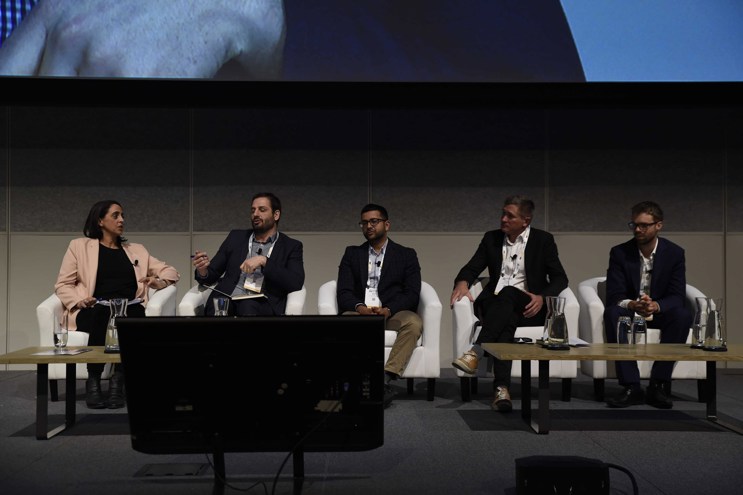Project Manager, Thomas Fleurot, was recently part of a panel discussion on 'Connecting Global Success and Medals Back to the Community to Inspire, Engage and Encourage Greater Participation' at the National Sports Convention in Australia.
In recent years, Thomas has served Sports Ministries, sports federations and city governments around the world working on designing strategies to increase and leverage grassroots participation and physical activity. A key component of this work has been making the case for investment into grassroots initiatives by demonstrating the value it can generate from a health, social, economic and performance perspective trough tailored data-driven SROI models. He also manages the Active Citizen Worldwide programme globally, a multi-city collaboration to leverage data and share knowledge to understand physical activity in cities and inform policy to create sustainable change.

Interviewer: Thomas, you have been involved with some of the globe's leading sporting organisations and some of the biggest brands in sports like the English FA. Tell me, from what you've heard today, what are the top priorities that we need to consider if we want to use global major events or key elite athletes to motivate greater participation?
Thomas Fleurot: Absolutely, I will attempt to summarise some of the key learnings from today as well as from my experience in this area. But before that, I would like to take a bit of a step back on the overall topic of Elite Sports inspiring Mass Participation.
Throughout the discussions at the convention, we talked about the value of Mass Participation and it is quite clear and there are some well-founded models showing that people being more active generate social value, health value, economic value. We also look at the other side of the spectrum a lot towards elite sports and what the value of success is. What does a medal mean for national pride? What does a successful tournament mean in terms of tourism, broadcasting and other sponsorship opportunities?
But the layer that is missing in talking about sports as a single system, and a single industry, is how these two interconnect. How does Mass Participation provide the pool of talent that can in the future fuel success at the Elite level? And vice versa, which is the focus of today’s discussion, what is the value of Elite Sports for Mass Participation?
The most important part of that topic is the definition of the problem. A lot of the studies out there show inconclusive results, it has even been said that events have a negative impact on people getting active, that they don't inspire people to participate. And that's because often the studies are done in a way where we assume that people will build lasting habits simply based on the fact that they watch or attend an event. We assume that an event, or a sporting success story, is going to get people active in the long-term but there are more factors at play.
There are examples demonstrating that elite success can inspire a spike in demand but that doesn’t necessarily mean a long-term impact on participation. For example, after France won the World Cup in 1998, there were over 200,000 more registered player the next year. But in the long term, that didn't translate into the same increase in more regular participants in football. So, can we say that it is a failure of the World Cup in inspiring people to want to get in the sport or getting more people wanting to get back into football? Or, is it a failure of the system to absorb this increased demand and supply the right opportunities for people to participate?
This is why this notions of definition of success and measurement should be at the forefront of all the work and discussion around this. Any major event should be able to measure what is the delta in terms of the demand that can be attributed to that particular event or elite success story.



Interviewer: And prepare for that, because similar stories from Sydney 2000 Olympic Games have shown the difficulty of matching supply with demand. So when we think about having the T20 World Cup coming up for both men and women, it's important for the ecosystem to be ready for an increase in demand and to be able to provide better experiences.
Thomas: Exactly. Now, in terms of what the key success factors in maximising the value of an event or of elite success for Mass Participation, I think a lot of them were touched upon today.
Firstly, the idea of targeting communities and avoiding one-size-fits-all strategies is crucial for a successful implementation. The work of AIS in Broken Hill is a good example. This was an intervention in a particular area engaging young men in high school facing a specific issue around mental health. So the use of athletes to inspire this community was targeted at the needs of that population around building confidence and sharing inspiring stories. We must ask ourselves, how are we leveraging elite sports to target specific communities rather than blanket attempts at inspiring people?
The second success factor, and that was very true in both of your presentations, is about creating experiences. So again, it's not about people seeing a billboard, but it's people feeling like they are a part of the event, of the success, of the medal. Creating individual experiences is essential to truly have a lasting impact on participation.
And the third one relates to your previous point, it is essential to be setting up for success. By this I mean that events must have a clear vision - what are we actually trying to achieve? The Cricket World Cup that just ended was aiming to engage a million kids from 5 to 12 year-old; it was a very clear vision, a very clear focus, which allowed them to measure, monitor and be able to say that the target was delivered.
But this must come with preparing for success. How do we make sure that if a million kids are engaged, and a proportion of those are going to want to play cricket, we are ready to cater for that increased demand? And how can we make sure before the event that we plan for what success looks like?
Interviewer: And retain and minimize the churn that does take place in sport.
Panel Chair:
Nicole Livingstone O.A.M. – Former Olympic swimmer, Sports commentator
Panellists:
Thomas Fleurot, Project Manager - Portas Consulting
Adam Woolnough, Engagement Manager, Athlete Wellbeing & Engagement - Australian Institute of Sport (AIS)
Sunil Menon, Community Engagement Manager - ICC T20 World Cup 2020
Andrew O’Loughlin, Director - Experience Design Co.
